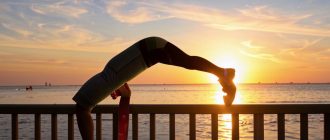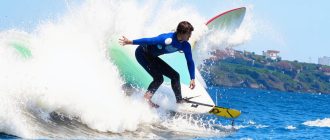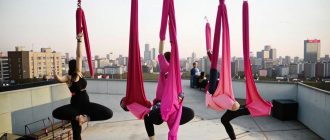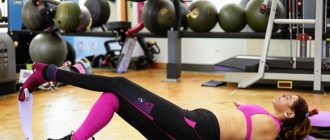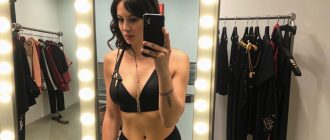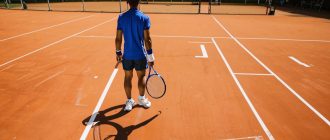About a year ago we came to Rosa Khutor Valley to report on the first official race under the Rosa OCR label . It was raining, there was terrible mud underfoot, and at the finish line the athletes were waiting for us… absolutely happy with the coincidence of the weather, the complexity of the course and the terrain. At that moment I clearly realized that the brains of extreme race participants are arranged in a completely different way. For them, the more difficult, the more interesting. They have no barriers and fears, so in order to get to the end, you need to be as confident as possible in yourself, your strength and your physical fitness.

If you have ever heard of the “Race of Heroes”, “Spartan Race”, “Become Human”, then the name of Sergey Perelygin should be familiar to you. For him every start is not just entertainment or team building with colleagues, it is work, adventure and, if you add a little pathos, a life’s work, which he chose for himself.
We met Sergey during his training camp in the mountains to ask him how to run races, be in demand and not be afraid to set new bars and goals in life.
– Where did your story around extreme racing begin?
– Initially I was involved in running, then I went to the army and tried the military obstacle course there. I liked it and started looking for something similar. At that time we didn’t have extreme racing in our country yet. One day on YouTube I came across a video from one of the Spartan Race starts. And I was hooked, I realized that it was my thing, I wanted to try and perform there. Over time, I realized that this is really my sport.
– How did this realization come?
– Before running, I used to do judo quite seriously, these trainings helped me a lot. Besides, I lacked speed abilities in running. When I came out of the army and started to compete in races, I realized that everything I was doing before helped me a lot to make results at the starts.
I went through judo school, which toughened me psychologically, my coach gave me a lot of things that came in handy in everyday life.

– What was your first race? Was it the Spartan Race?
– No, I just came across Spartan Race on YouTube, it was a motivation, a dream (smiles). My first race is a very interesting story. In the Krasnodar region there is a village Voronezhskaya, there was a race like Tough guy in 2015.
Tough Guy is the very first obstacle course race, it is held in the UK in winter, in January, it takes place on ice, and statistically only 30% of participants finish there.
Here the guys tried to do something similar, there were few obstacles, but there was a lot of cold water and uneven terrain. The race was held in early March, so there was even ice. When I arrived, I was all emotional, I went to the start with a bare torso, in shorts, because I had seen videos where everyone looked like that (laughs). The organizer joked that when they went to watch the course in the morning, a stray dog followed them and died of hypothermia.
I remember this race very well, the main difficulty was the cold, we even had a bath at the finish line. Many guys were shaking, they were brought in, rubbed with alcohol, the body was not ready for such hypothermia.
– What popular, extreme races have you participated in or would you like to participate in?
– Some organizers try to emphasize extreme races, but extreme can appear in any race, it depends on weather conditions, they are unpredictable. One of the most emotional races for me was the 2016 Race of Heroes Super Final. It was held in late September, it was very cold. There was talk of closing the water obstacles. And we have people like that, they want more thrash, so everyone started asking not to close them (laughs). It was a very serious challenge even for our team, although we were well prepared.
In the second half of the race we just started to get cold, we had a good time, we were leading, but it was just a question of finishing. Two or three of us started to shake from hypothermia, we didn’t understand anything, because hypothermia affects the brain. Towards the end, our team member Anton Suzdalev, a guy with a good layer of fat, if I may say so (laughs), helped the others to get out of the ditch with water and just guided us to run in the right direction.
Then my legs started to cramp up, and there were only two kilometers to the finish line, so we finished the race on moral willpower. This is probably the most memorable victory for me, plus it was a team victory. It brought us together, we are still in touch with each other.

– Have you ever had moments during a race when you got scared?
– Yes, there were, just at the “Race of Heroes”, they have an obstacle “Abyss” and there you have to jump from a height of about five meters. I’m not afraid of heights, but I didn’t do this stage the first time, I had to pause for 2-3 seconds. And in such races you can’t lose time, because those seconds you lose before jumping can cost you a victory or a podium. You kind of know that everything is tested out there, everything is safe, but a lot of people can’t handle it.
– Tell me about the race that took place in Chechnya.
– It was the first time that participants from Russia were allowed to run there, and it’s interesting that girls were allowed to participate. But they were required not to have any exposed body parts. The competition was open to everyone, and the start was really interesting.
– Were you going to win?
– At that moment I was already the leader in the country, and it was difficult psychologically, because I was already given the main prize, and the competition did not become less serious. I prepared and tried not to think about what they say, I went to the start with the goal to win, which is not surprising, who does not want to win Mercedes.
There was a section where you had to get through the pipe, it seemed not difficult, but it is very slippery, and I was stuck for a few minutes, I could almost see my Mercedes leaving (laughs). There was a question of whether I would be able to do it at all, the obstacle was really difficult, there were a lot of guys stuck there. And one more very specific moment – there was shooting, penalty laps, it was like biathlon. This is an atypical story, there is such a thing only in Chechnya. In 2018 they also held a race, but this time the main prize was a Lada Vesta, I didn’t win (laughs).

– How do you feel about the specifics of the races held in Russia?
– We have such a country, where there are many interesting locations, but it is hard to get to them, even the same Caucasus, to get there you fly by airplane, then transfer three hours, then to the place by car. The problem with logistics is frustrating.
– What are the ideal training conditions for you?
– It depends on the race, if there are no mountains, you can train in Moscow. If it is “Spartan Race”, they emphasize the terrain, especially at major competitions, for example, last year they held a race in the Alps. You have to prepare for these races in the proper terrain.
For me, the ideal place for training is Rosa Khutor. The height of 1200 meters allows you to train in hypoxic conditions, plus the training camp is also at altitude, for me it is the best place to prepare for participation in the “Spartan Race”. There are starts where on the contrary more attention is paid to obstacles, it is better to prepare for such things in a big city.
– Have you participated in the world championships?
– Yes, I am a bronze medalist of the World Championship, which was held in London, in the sprint discipline. Spartan Race” also held competitions in the Emirates, it was the championship of the Middle East, I won it, I became the champion of the Middle East, but this year I lost this title, because I was third. Now I remain the European champion and the Asian champion for Spartan Race.

– What weather conditions make the race more interesting for you?
– For some people rain is good for them and for others it spoils everything. There are those for whom the worse the track is, the better their results will be. For example, we have Sergey Silin, he feels better the worse the conditions are. I prepare for any conditions, I don’t have any preferences, I adjust to everything, about two weeks before I start to imitate these conditions, because at the races there can be anything and you must be ready for it.
– How do you psychologically adjust for the race?
– When it’s time to start, I realize that it’s going to be very hard, I have to be patient… What helps you to tune in? The most important thing is to realize that I can overcome it. With experience comes the understanding that sometimes it is not the one who is in the best physical shape who wins, but the one who is as focused and psychologically in tune as possible. I even have a favorite phrase: “No pain, no success.” It means that the distance will not be easy for anyone, but the result at the finish line will be worth it.
– Why did you decide to run for results rather than for your own pleasure?
– I have been in sports since childhood, I always had a dream to become an athlete, I always liked it. So when I came to racing, I had the goal to participate in the elite. What’s good about our sport? Here anyone can qualify for the PRO-wave and compete on par with the professionals. There is no such thing as in biathlon, for example, that you look at the professionals and realize that you will never compete with them, even if you love biathlon and have been doing it for a long time.
If you don’t have a certain physical preparation and desire to fight for results, you can do it for your own pleasure. There are no qualities that need to be laid down in childhood. There are special skills, but anyone can start, there are different distances. I know people who came to our sport after thirty and achieved success.
I love soccer very much, no matter who criticizes the players, I believe that it is a highly competitive sport.

– Which athletes have inspired you by their example?
– I follow all disciplines, so there are many such examples. Including cyclic sports, I love soccer, whoever criticizes soccer players, I believe that it is a highly competitive sport. Everyone knows Ronaldo and Messi, they are probably billionaires, it would seem that what else do they need (laughs), but they still get up every morning, train and maintain their high level – such people inspire me. I want to be in racing like Messi is in soccer. Not to stop after victories (smiles).
In tennis there is Federer, everyone considers him a veteran, but he continues to play at his level, in biathlon there is Bjorndalen, who won the Olympics at the age of 40, that’s very powerful! If we take obstacle races, there is an American who came from track and field – Hobie Call, he competed until the age of 40, he is considered a legend of OCR, he finished just a year ago, I followed his performances with great interest, read interviews.

